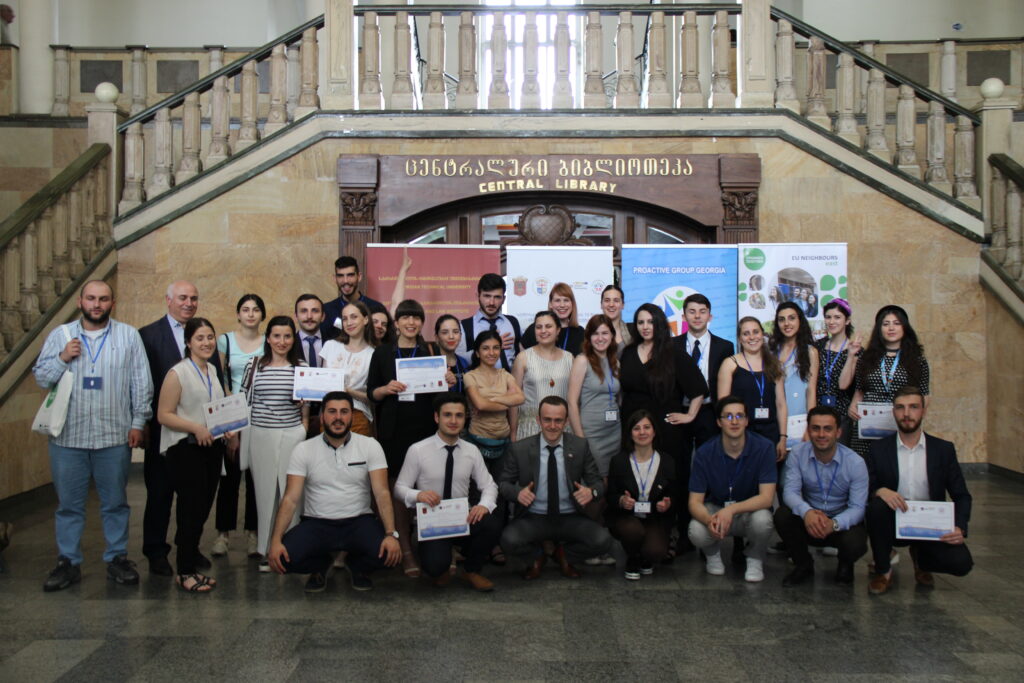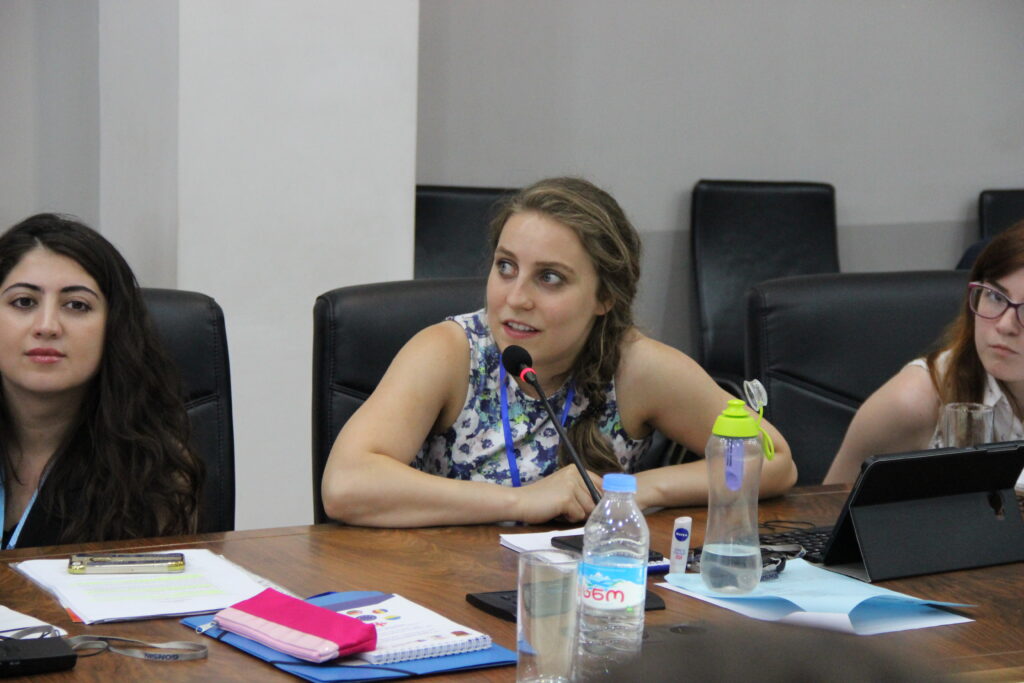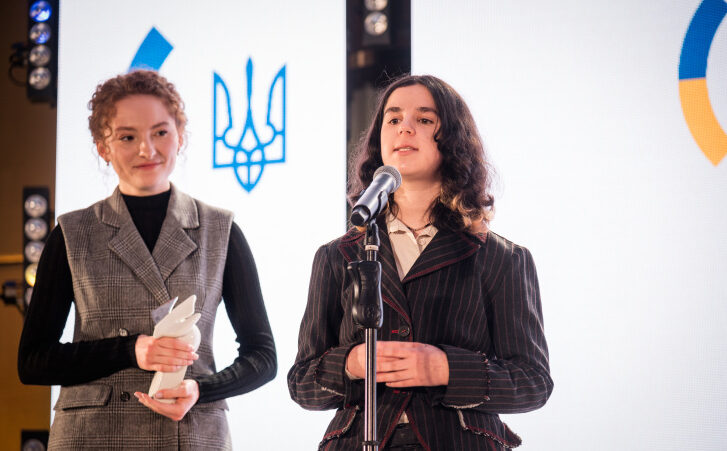
Young People Debating and Designing the Future of the Eastern Partnership in Georgia
The Eastern Partnership (EaP) is turning 10 years old this year, and many events are held throughout Europe and the EaP countries to celebrate its achievements, raise awareness among the population, debate the pro’s and con’s of the current partnership policy, and draw up proposals on its future to further foster relations between the EU and EaP countries.
One of the events celebrating and contemplating the Eastern Partnership, and an extremely successful one if I may say, was the conference “EaP 10th Anniversary – Youth Perspective”, organised by the Proactive Group Georgia in cooperation with ‘EU NEIGHBOURS East’ project and the Georgian Technical University in June 2019.
Georgia has for some time been named the leading candidate in many EaP initiatives. As such, the country has signed an Association Agreement (AA) with the EU in 2014, which included a preferential trade regime – the Deep and Comprehensive Free Trade Area (DCFTA). Moreover, as a result of its domestic reform efforts, Georgia has been rewarded with visa liberalisation that has become available for all Georgian citizens to benefit from in 2017. Georgia, which is known for its mountains, great food, hospitality and world class wine is quickly gaining popularity as a tourist destination among the EU population, and made headlines, e.g. for its 2003 revolution and the resulting societal changes.
As Young European Ambassador, I was honoured to have been invited to participate in the “EaP 10th Anniversary – Youth Perspective” conference, speak on behalf of the EU youth and exchange views with young people not only from Georgia specifically, but other EaP countries as well. This event has offered me the unique chance to visit Georgia and meet the Georgian YEAs, many of whom I will stay in touch with. We were hosted by the Georgian Technical University who went out of their way to accommodate us and invited us for a wonderful traditional Georgian Gala Dinner on the last day.
 Participants of the conference
Participants of the conference
The conference was preceded by a civic engagement activity with local students from Kareli on the general topic of environment. I was impressed by the background knowledge of the student on many specific questions in this subject, and how much interest they showed in this topic and the exchange opportunities presented to them by Georgian YEAs. It was a pleasure to get to know this part of Georgia with its beautiful hills, forests and centuries old monasteries, and to represent a face to the ambiguous concept of the “EU” to students from this rural area.
During the conference itself, we were visited by various guest speakers from the Georgian government, civil society representatives, university professors, staff from the EU Delegation and youth programs who participated in the many panel discussions, answered to our questions and concerns, and were very open to chat with us also informally during the coffee breaks. This first part of the conference allowed for a detailed analysis and understanding of the shortcomings and successes of the policy over the past 10 years, which helped us to prepare some ideas for the next day.
Youth is a key stakeholder in the Eastern Partnership and must be listened to if the policy is to be sustainable, since the youth of today will become the decision makers, business owners and leaders of tomorrow. The organisers of the conference understood this and decided to give the youth a voice. Therefore, on the second day, we had a chance to discuss the status quo in four different thematic areas and develop concrete recommendations on how to improve the EaP framework policies in the future with regards to:
- Connectivity, Environment and Energy Efficiency
- Strengthening Institutions and Good Governance
- Economic development and Market Opportunities
- Mobility and People to People Contacts
The final report including the many recommendations and ideas introduced by the working groups in the final presentations is due to be published by the organisers, once finalised.
It is difficult to offer a general conclusion to the event, since I am sure everyone took home a different set of learnings and new ideas. For me, representing the EU youth, I will never forget the enthusiasm of the Georgian youth towards the EU, and their optimism about the opportunities the EU can offer them. Many participants of the conference had previously participated in Erasmus youth exchange opportunities, and many others plan to in the future.
In this context, the general opinion of participants and expert speakers was that more political commitment is needed on the side of the EU to continue to pursue a real partnership with Georgia. However, political commitment to furthering the scope and depth of the EaP is limited at the moment and the union currently, most likely due to disagreements amongst the Member States in the Council, offers no clear cut promise of what developments to expect in the mid- to long-term future, and membership perspectives are intentionally avoided. Some EaP countries, including Georgia, are serious about their objective to become members of the EU, but this depends not only on their own effort, but also on the position of the EU member states who will, with the consent of the parliament, unanimously vote in favour of most decisions during the accession process.
The experience once again showed me the real value of people to people contact in the future of the Eastern Partnership. It is absolutely necessary for the youth but also decision makers, business owners and civil society to connect, exchange experiences and best practices, and to already establish reliable channels of information which will facilitate closer integration and cooperation in the future.
I, along with my fellow participants, hope that the conclusions of the conference will have a significant positive impact on the future of the Eastern Partnership and call upon politicians and other decision makers to hear, respect and take into account the voice of the youth.
 Kristin Aldag
Kristin Aldag
 Participants of the conference
Participants of the conference
LATEST

Building Europe: Poland’s experience of joining the European Union and lessons for Ukraine

World Health Day 2024: My Health, My Right

EUREKA MEETS EUROPE – opportunities to develop and study. My experience

Can you wear pink in the workplace?

Go where your deepest fears lie: finding the courage to overcome gender barriers in STEM
More campaign pages:
Interested in the latest news and opportunities?
This website is managed by the EU-funded Regional Communication Programme for the Eastern Neighbourhood ('EU NEIGHBOURS east’), which complements and supports the communication of the Delegations of the European Union in the Eastern partner countries, and works under the guidance of the European Commission’s Directorate-General for Neighbourhood Policy and Enlargement Negotiations, and the European External Action Service. EU NEIGHBOURS east is implemented by a GOPA PACE-led consortium. It is part of the larger Neighbourhood Communication Programme (2020-2024) for the EU's Eastern and Southern Neighbourhood, which also includes 'EU NEIGHBOURS south’ project that runs the EU Neighbours portal.

The information on this site is subject to a Disclaimer and Protection of personal data. © European Union,